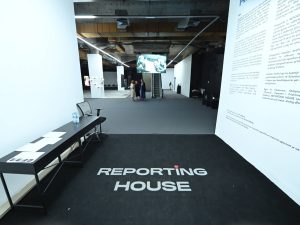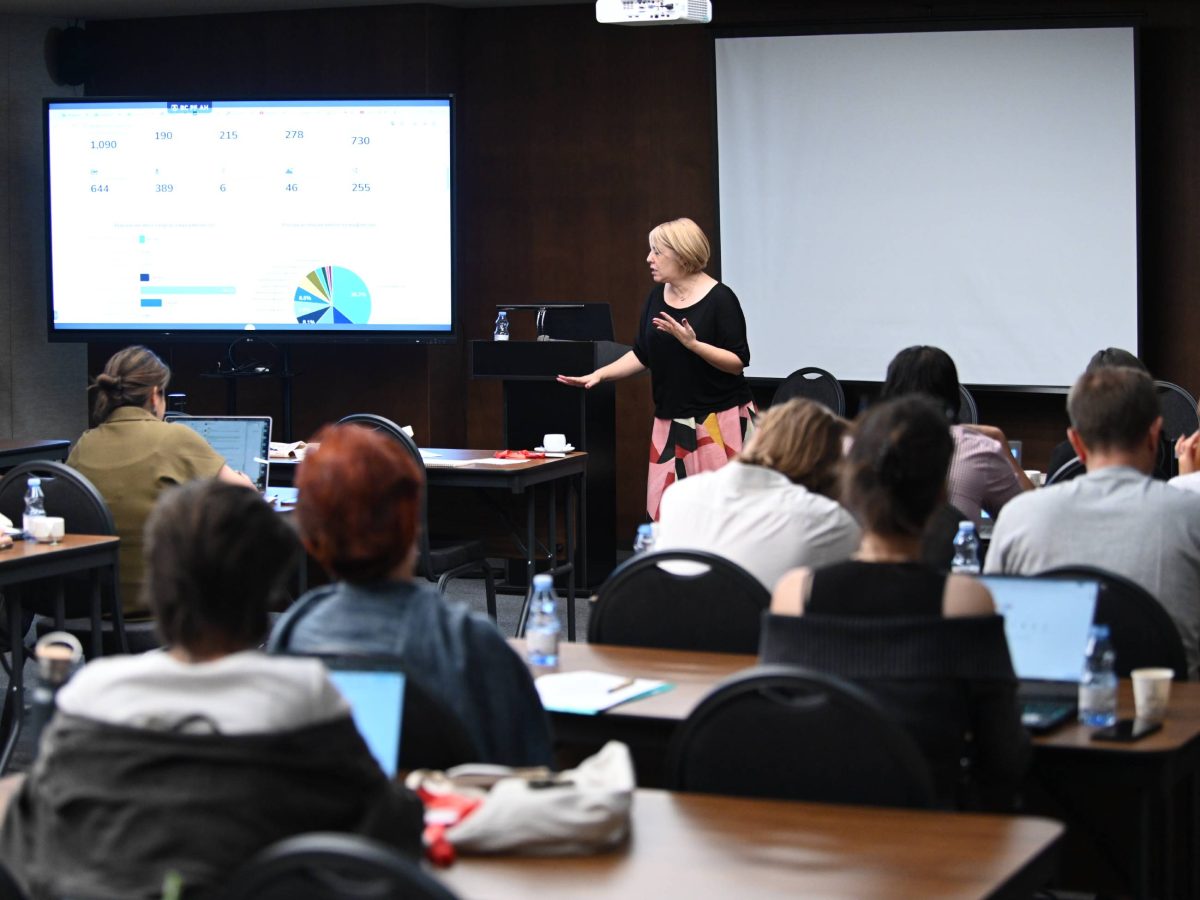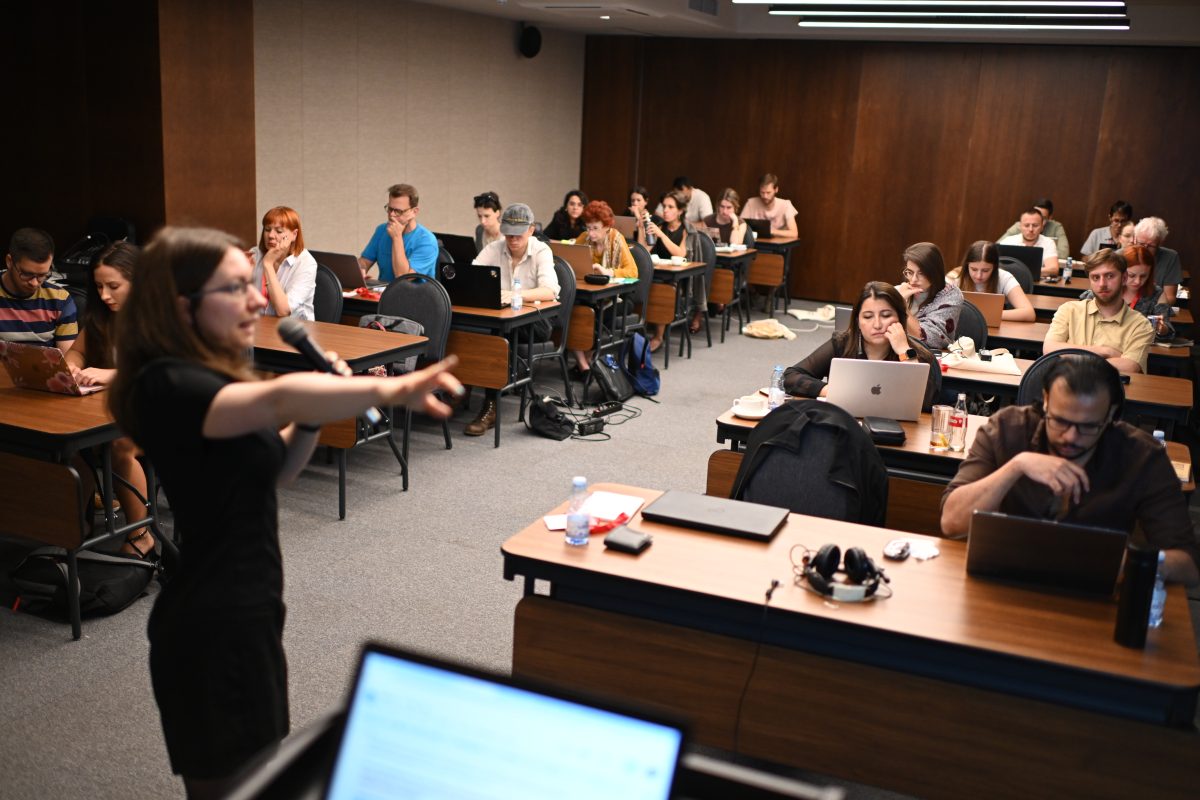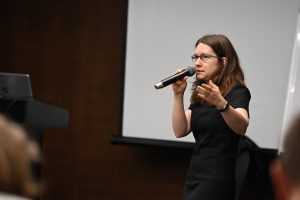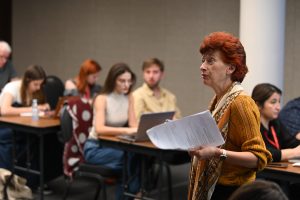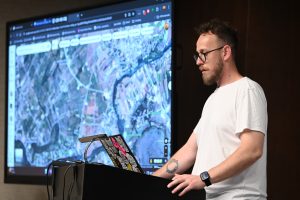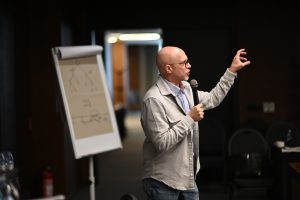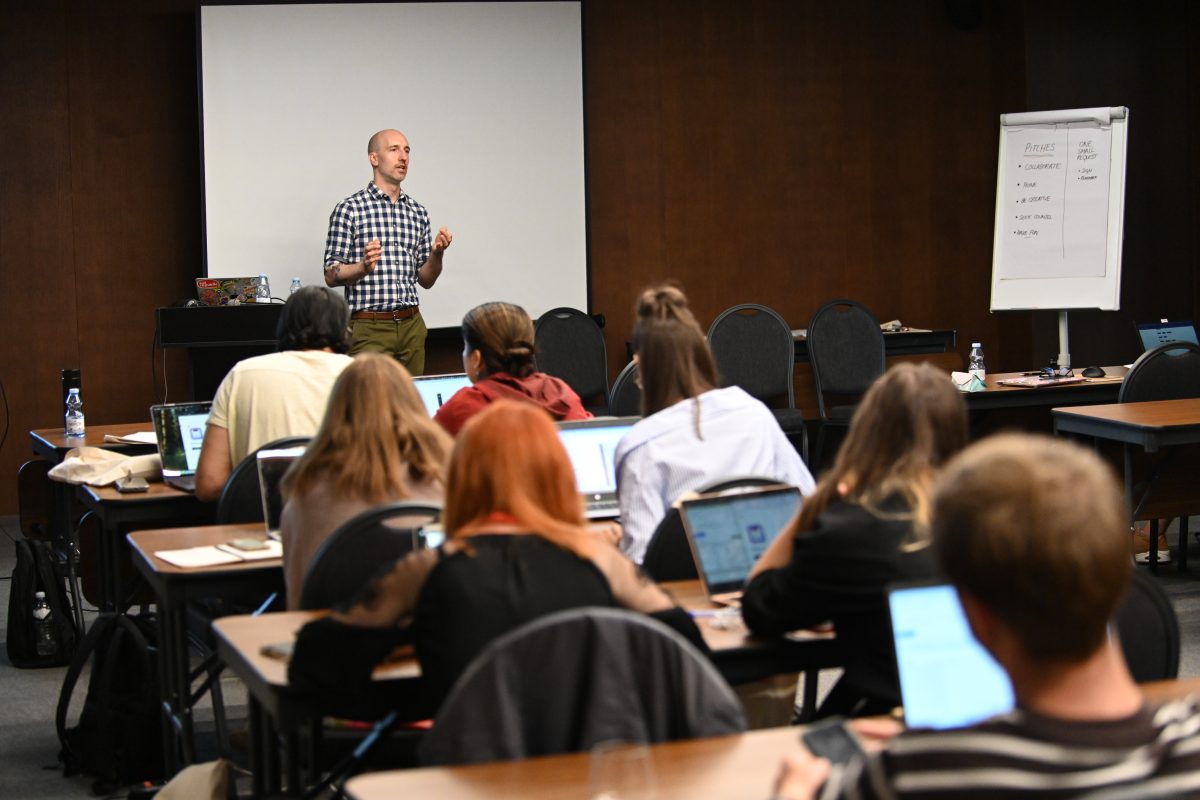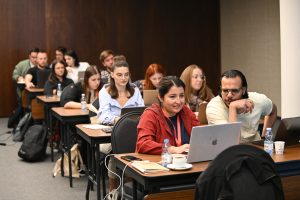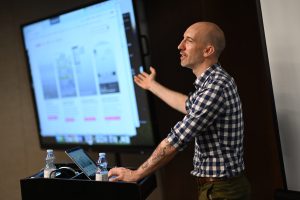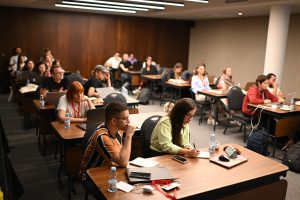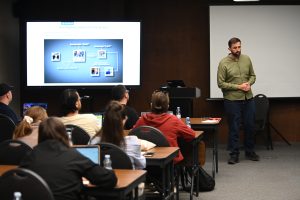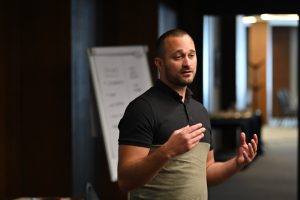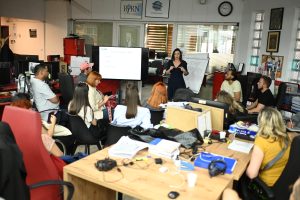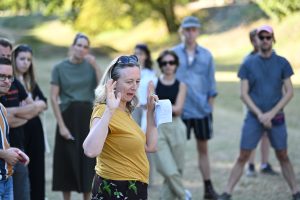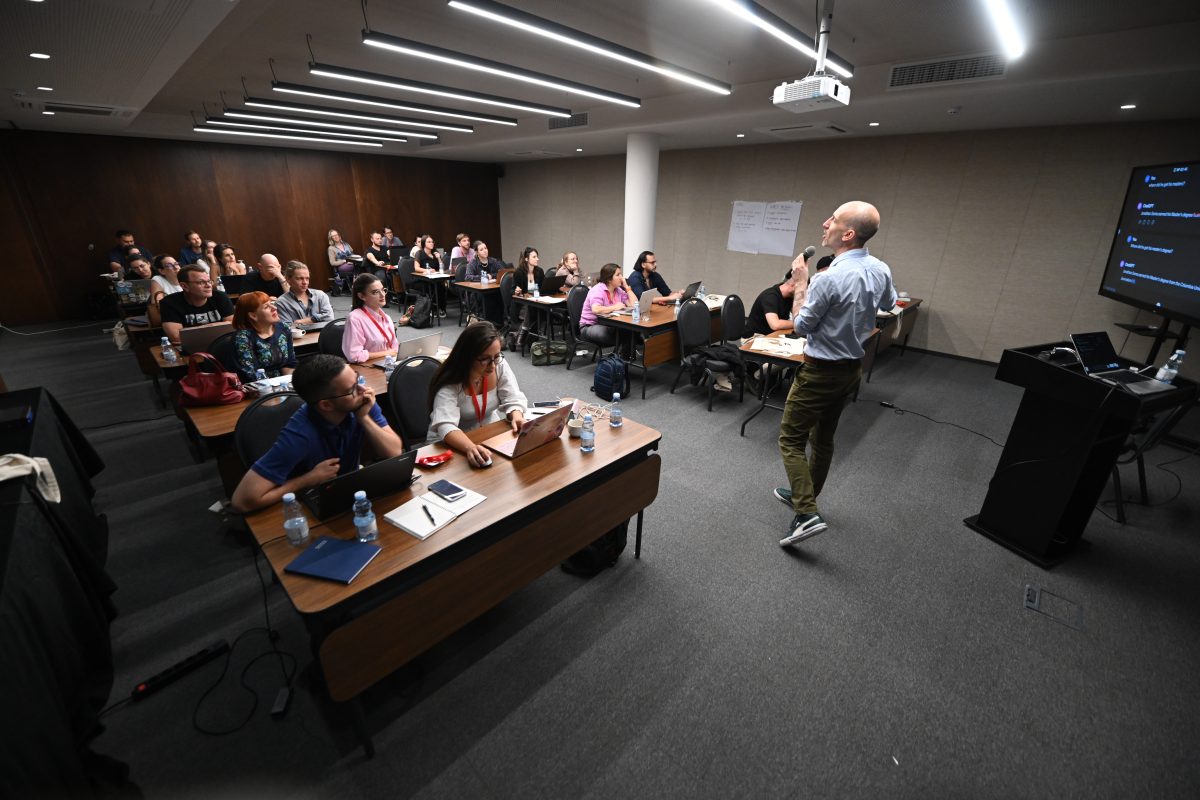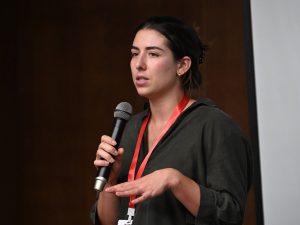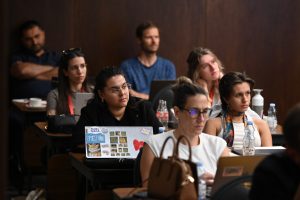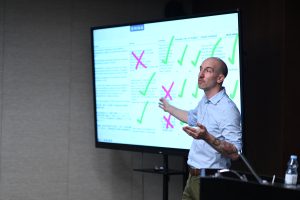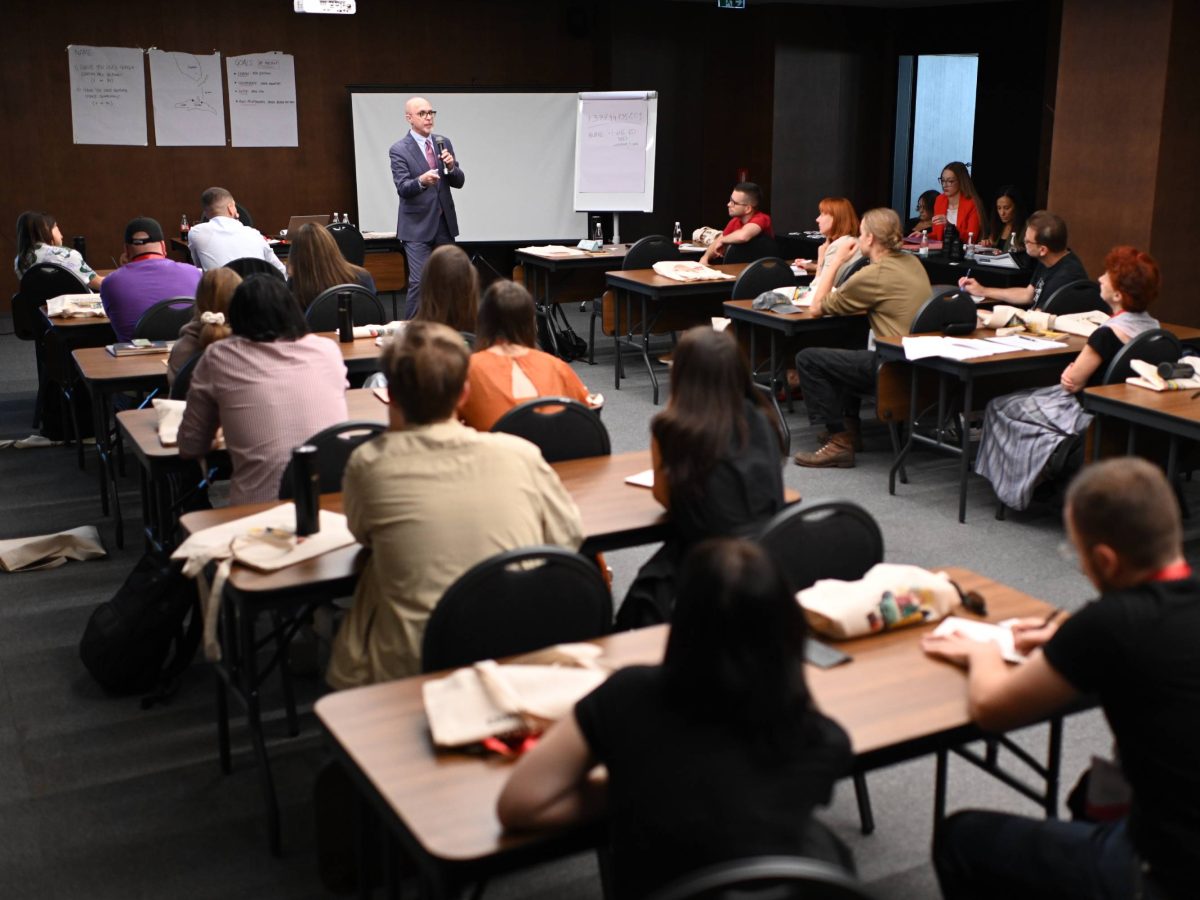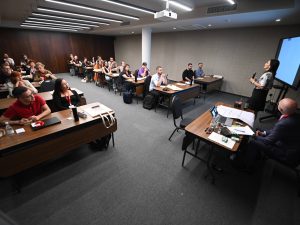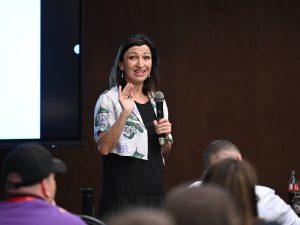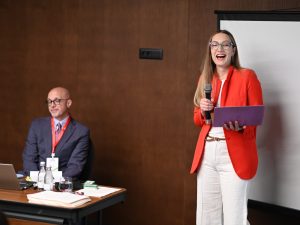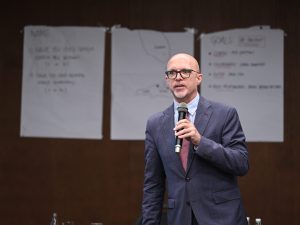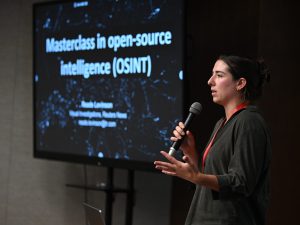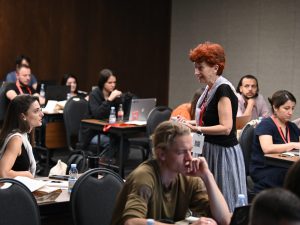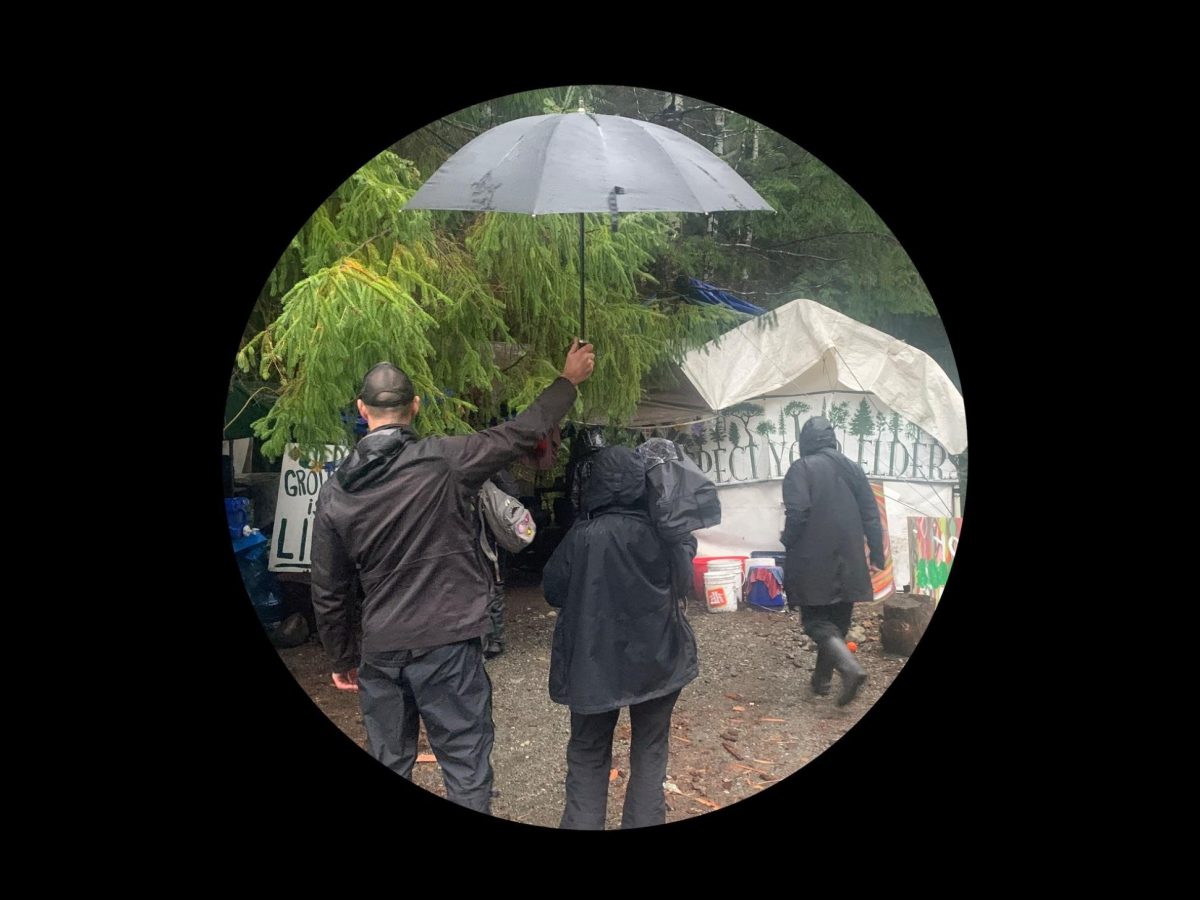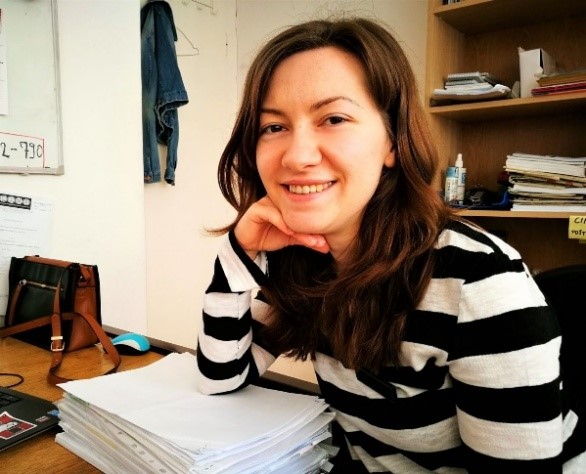by Vuk Tesija
Morrison was joined by Gordana Andric, Executive Editor, BIRN Serbia, and Sasa Dragojlo, BIRN Serbia Correspondent, to help 30 participants turn their story ideas into solid pitches.
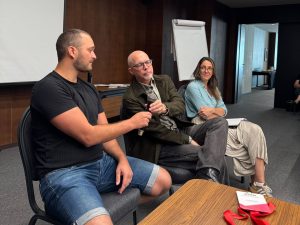
In the next session, Ana Petruseva, Director, BIRN Macedonia, held a workshop on ‘Developing Complex Databases with Thousands of Documents’, which gave participants new insights into handling large amounts of data.
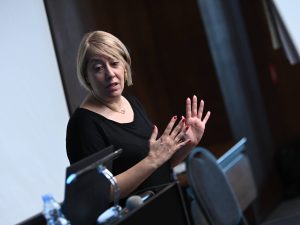
“When we encounter a huge amount of data, we always find ourselves in a phase where we say ‘this can’t be done!’, but that usually means we have a new challenge that we want to overcome,” Petruseva told participants. “Methodology is key. If you have any inconsistencies, then you are in trouble.”
She explained this using real world examples of data such as foreign investment, state subsidies and media ownership. She presented data on BIRN’s research into the land owned by religious communities – the Macedonian Orthodox Church and the Islamic Community – in North Macedonia.
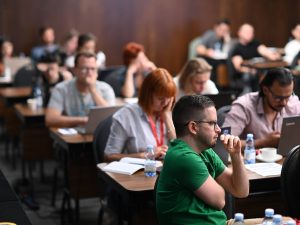
Kreshnik Gashi, Managing Editor at Kallxo.com at BIRN Kosovo explained to participants in the next session how to and reduce legal risks in reporting. During his presentation, ‘Reporting Safely: Legal Considerations, Case Illustrations, and SLAPP Insights’, Gashi shared his experiences of protecting himself from SLAPP (Strategic Lawsuit Against Public Participation) lawsuits, state pressure, corporate influence, and other challenges that can put journalists in legal jeopardy.
“Journalists are being arrested, sued, and threatened with lawsuits. Although we live in democratic societies, officials and people of influence and power can still pose a threat and attempt to intimidate us,” explained Gashi.
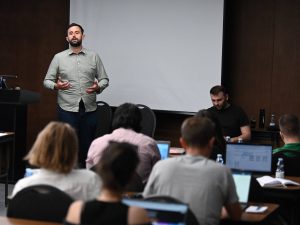
He added that the goal of a SLAPP is not to win in court, but to drain the resources, time, and money of journalists and newsrooms.
Gashi also reminded colleagues that they must respect the ethical principles of journalism and comply with privacy rules. “Use your knowledge of the law to protect yourself,” he advised.
Next up, Denis Dzidic, BIRN Bosnia and Herzegovina Director, shared his experiences during a session called ‘Reporting in Times of Crisis – War Crimes Reporting’.
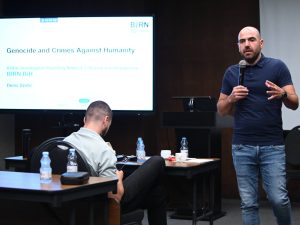
Participants ended the day with a visit to the BIRN Museum Reporting House and participated in a panel discussion, ‘Investigative Journalism: Two Decades of Change, moderated by Denis Dzidic and attended by BIRN founders Petruseva, Jeta Xharra, BIRN Kosovo Director, and Dragana Solomon.
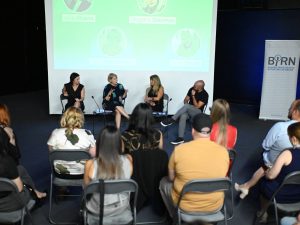
This was followed by the Certificate Awarding Ceremony in the Reporting House yard, during which journalists socialised and exchanged experiences in an informal setting.
